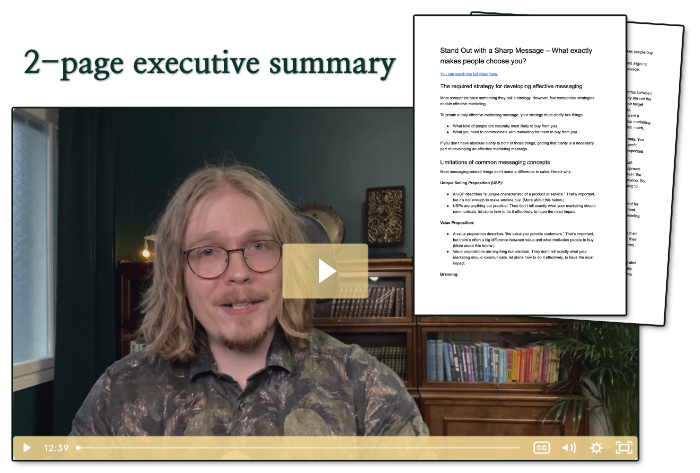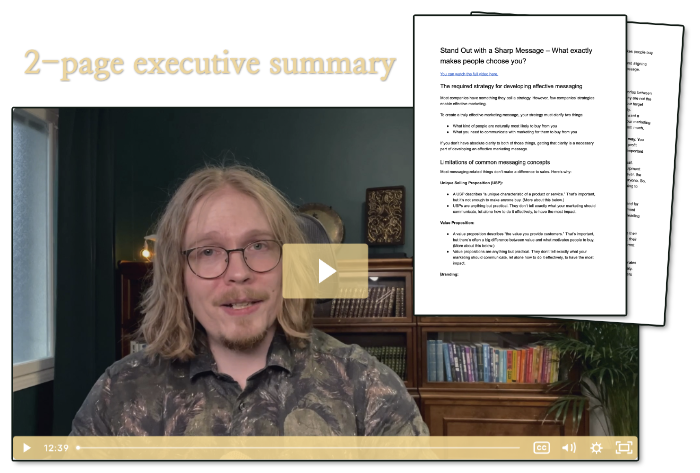The biggest business mistake you can ever make, is one you’re likely to make. Several times. Without noticing.
It stops your business from going forward, and can even take you back. Do it too often and you guarantee your business won’t succeed. This is also the most common reason most bloggers never succeed.
And here’s what’s worst about it, the mistake is a lot of fun to make. So, even when you notice you’re making the mistake again, you may not do anything about it.
What’s the biggest business mistake? It’s losing focus.
You’ve probably done it, everybody you know has probably done it, I certainly have done it. But what exactly does it mean, to lose focus?
Losing focus
You should always know what you’re after in the end. In almost every business, this goal is profit. For Unicef that goal is to save the children of the world. For bloggers that might be selling an e-book or getting more ad revenue. In any case, this goal is the end result you’re after.
But it’s not enough to know what you’re after. You need to know how you plan on getting there.
These are basic business truths, so how could anyone forget them? The mistake isn’t forgetting your end results, nor creating the plan. The mistake most people make, is to lose focus of the plan.
You might start a project that doesn’t really get you closer to the end results you’re after. Or maybe you hire someone who doesn’t really fit your plan. You basically do something that feels like it gets you closer to your goals, but it’s not a part of your plan, and doesn’t actually help you one bit.
You forget how your plan is supposed to work, and you alter it without preparation.
Your end game and the game plan
Before you ever start a business, you should know exactly how it will generate income (assuming that’s your goal, the end game). For most businesses this is a straightforward question (selling specific products or services).
The next question is a bit trickier. How do you plan on selling your products and services? “Online” or “in local stores” is a poor answer. It’s like saying, “We’ll win the game by scoring more points than our opponent.”. You need to know how you’ll get your products sold. This is your game plan.
The important question to ask is, “What can I do, to make people want my product.” When you have thought through all possibilities you can think of, choose the best plan.
Now that you have your game plan, follow it. Do what the plan says you need to do. This is the time when you’re most likely to make the big mistake. After a while of following the plan, you do something unplanned just because it felt like it was a part of the plan. And you’re unlikely to notice it.
If you like sports metaphors, here’s one: Your business game plan is like ice hockey. Your end game is to win, but if you think for a moment that you only want to hold the pluck, you could take away your goal keeper and get a sixth player on ice. You’d probably meet your goal of holding the pluck more, but you’d also lose the game. Similarly if you confuse your short-term goals (holding the pluck or getting more people into your store) with your end game (winning or making a profit), you’ll work toward a misguided goal.
Don’t obsess over your plan
Maybe you used a lot of time to create the plan, and you followed it religiously. And that’s exactly what you should do. But you shouldn’t become obsessed with your plan.
If there’s a reason to change the plan, you should do it. Holding on to a plan that’s anything less than the best plan available is stupid. Knowing which plan is the best is sometimes impossible. As a rule, if there’s no clear reason to think another plan is better than the one you already have, don’t switch. It’s better to see through the plan you’re already executing, than to start over with another.
For many admitting their mistakes is difficult. But protecting your reputation will only benefit your ego, not your company, bottom line, customers, marketing, or anything else. If you notice that a change to your plan would probably work better, than do the change. Admit that you’re a human and that the original plan wasn’t perfect. In the end you made the plan better, regardless of your feelings. At least I’d rather hire someone who puts the benefit of the company ahead of their own image… Wouldn’t you?
How to stay focused
I wish I knew a definitive answer to this, but I don’t and I don’t believe it even exists. Here’s a couple of ideas that have helped me to stay focused.
1. Spell out your goal. Your goal may seem so obvious to you, that you’ve never actually said it out loud. Write it on a piece of paper and assess if it’s clear or not. If it’s not extremely clear, then clarify it so that you cannot forget the end result you’re after.
2. Create a timeline. Put a deadline (or an approximate time) for each step in your plan. When you know all the steps and when you’re supposed to do them, you’re less likely to stray from your path.


